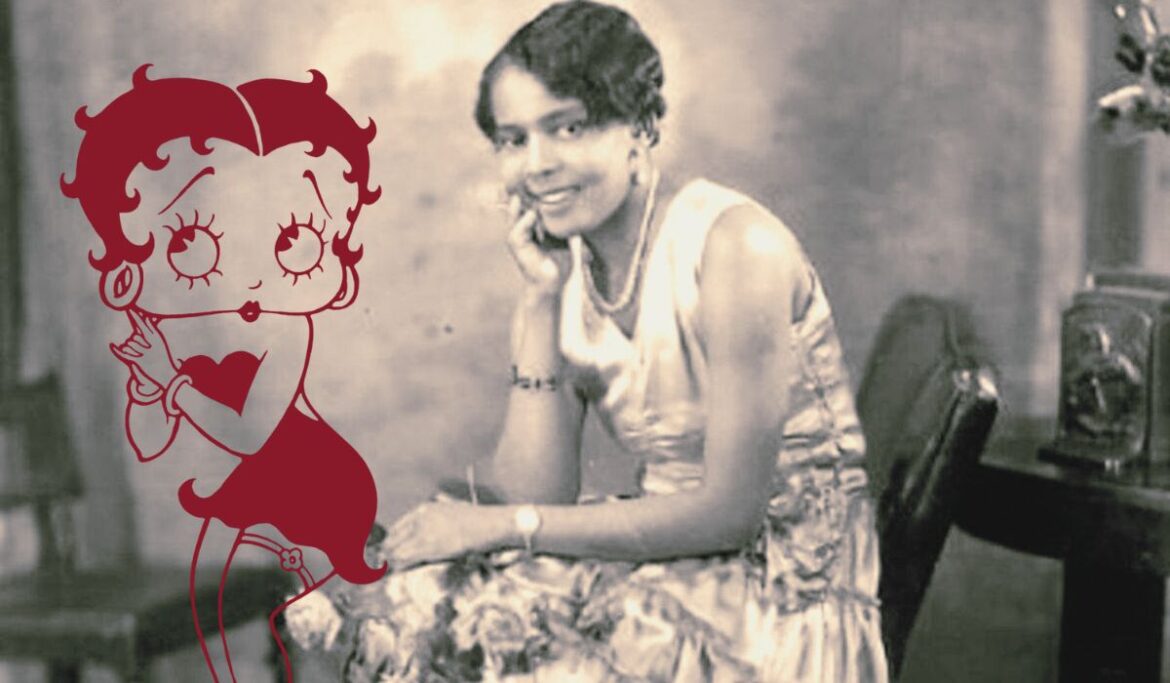As we celebrate Women’s History Month, it is essential to recognize the often overlooked contributions of Black women to shaping American popular culture. One such example is the story of Esther Jones, a young Black performer whose unique style and talent played a significant role in creating the iconic cartoon character Betty Boop. This article sheds light on Jones’ legacy and the broader issue of cultural appropriation in the entertainment industry.

The Rise of Baby Esther:
Born in Chicago in 1918, Esther Lee Jones, known by her stage name “Baby Esther,” began her career as a 𝘤𝘩𝘪𝘭𝘥 performer in the late 1920s. She quickly gained popularity for her distinctive “𝑏𝑎𝑏𝑦” singing style and scatting abilities, which included the now-famous “boop-oop-a-doop” phrase. Jones performed regularly at the renowned Cotton Club in Harlem, New York, captivating audiences with her unique vocals and stage presence. Her act included a distinctive vocal style, incorporating “boop-oop-a-doop” scat singing, which would later become a signature element of Betty Boop’s character.
Betty Boop’s Creation and the Influence of Black Jazz Culture:
In 1930, animator Max Fleischer introduced the character of Betty Boop in the cartoon “Dizzy Dishes.” While Betty Boop initially appeared as an anthropomorphic French poodle, her character soon evolved into the iconic human form we recognize today. Fleischer drew inspiration from the popular jazz culture of the era, which was heavily influenced by Black musicians and performers, particularly those in the Harlem Renaissance.
The Helen Kane Lawsuit and the Revelation of Baby Esther’s Impact:
In 1932, white singer and actress Helen Kane filed a lawsuit against Max Fleischer and Paramount Pictures, claiming that she was the originator of the “boop-oop-a-doop” style and that Betty Boop was a copy of her act. During the trial, evidence came to light that revealed the true origin of the style: Baby Esther’s performances.
Testimony from the Cotton Club’s manager, Lou Walton, confirmed that Kane had seen Baby Esther perform in 1928 and later incorporated elements of Jones’ style into her own act. Furthermore, it was revealed that Max Fleischer had attended performances at the Cotton Club and used Jones’ style to inspire Betty Boop’s voice and mannerisms.
The court ultimately ruled in favor of Fleischer and Paramount Pictures, acknowledging that the “boop-oop-a-doop” style originated from Baby Esther’s performances, not Kane’s act.
The Erasure of Black Influence and Cultural Appropriation:
Despite the court’s recognition of Baby Esther’s influence, Jones received little acknowledgment or compensation for her contributions to the creation of Betty Boop. This case highlights the pervasive issue of cultural appropriation and the erasure of Black artists’ influence in the entertainment industry.
As Betty Boop’s popularity grew, her connection to the Black jazz culture and the influence of performers like Baby Esther was gradually diminished. The focus shifted to Betty’s adventures and romantic escapades, overshadowing the jazz-inspired musical numbers that characterized her early appearances.
Reclaiming Baby Esther’s Legacy:
In recent years, there has been a growing movement to acknowledge and celebrate Baby Esther’s legacy and her role in shaping the iconic character of Betty Boop. Scholars, historians, and activists have worked to bring attention to Jones’ story and the broader issue of the lack of recognition for Black artists’ contributions to popular culture.
Efforts to reclaim Betty Boop’s Black roots have emerged, such as the 2014 animated short film “Betty Boop: Snow White,” which featured Betty performing a jazz-inspired rendition of “St. James Infirmary Blues” in a setting reminiscent of the Cotton Club.
The story of Esther Jones and her influence on the creation of Betty Boop serves as a powerful reminder of the significant contributions made by Black women in shaping American popular culture. It also highlights the ongoing struggle for proper recognition and acknowledgment of Black artists’ work in the face of cultural appropriation and erasure.
As we celebrate Women’s History Month, it is crucial to highlight the stories of trailblazing Black women like Baby Esther, whose talent and influence have been largely overlooked. By acknowledging and honoring their legacies, we can work toward a more inclusive and equitable representation of Black women’s achievements in the entertainment industry and beyond.
